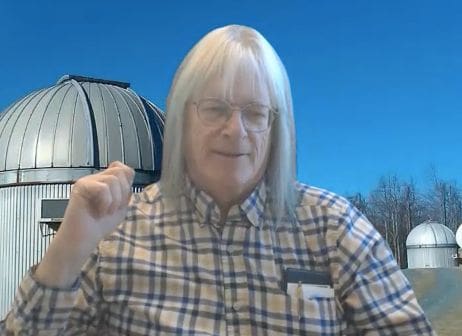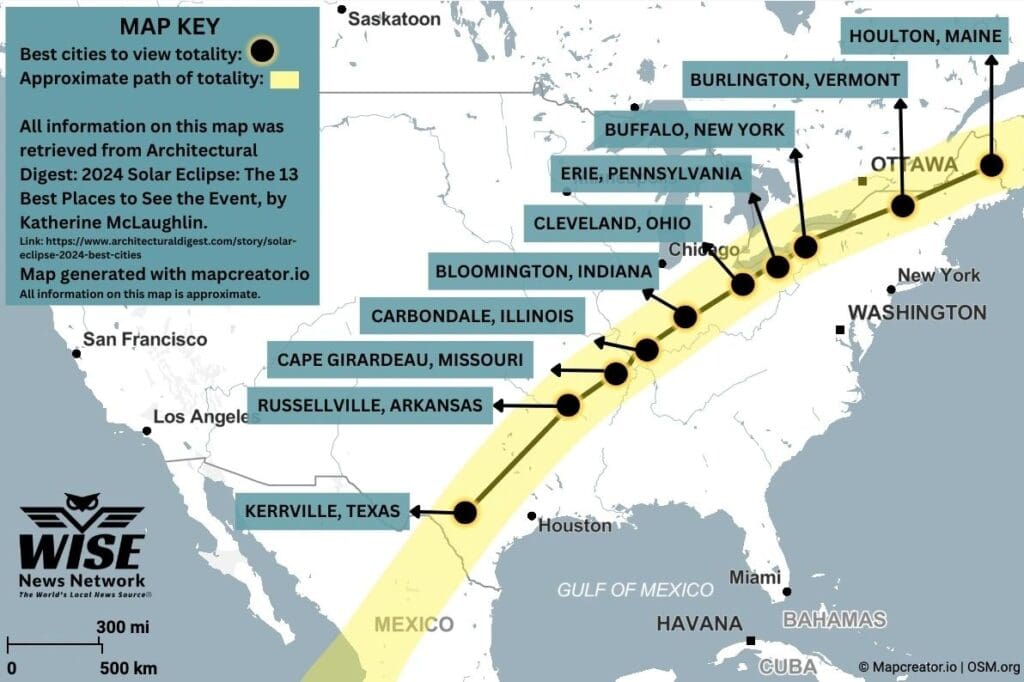Last U.S. Eclipse Until 2044
By: Grace Smith – Wise News Network
CHERRYVILLE, NC (WNN) – You do not have to be an astronomer to enjoy this upcoming eclipse, but Dr. Daniel Caton is. The Appalachian State professor shared how he is preparing for the upcoming astronomical event.
The eclipse will pass over North America on Monday, April 8, 2024. It will start in Mexico, before creeping up North, towards Canada. 13 states will lie in the path of totality for the eclipse, meaning that millions will witness the moment when the moon blocks the sun’s rays.

Dr. Caton explained that a total solar eclipse is when the moon passes in front of the sun. They happen because of “dumb-luck.”
“It’s dumb luck that we have it because the sun is 400 times farther away than the moon, but the Sun coincidentally is 400 times larger. So one exactly can cover the other,” said Dr. Caton.
He revealed that eclipses happen frequently, typically between two seasons a year. In 2024, the first eclipse season is March-April and the second is September-October. Dr. Caton said eclipses are common, however, what varies is how often they fall onland.
“In fact, since 70% of the Earth’s surface is ocean water, most of them occur over the ocean,” said Dr. Caton.
The most recent eclipse in the continental United States took place in 2017, with North Carolina among the states witnessing 100% totality. This time, N.C. will experience approximately 85% totality.
“This year’s path starts in Mexico and goes through Texas and through the Midwest and then into the Northeast U.S.,” said Dr. Caton.
Architectural Digest published an article about the best cities to watch the eclipse. Among the 13 locations is Kerrville, Texas, the first U.S. city that will experience totality. The last U.S. city to see totality will be Houlton, Maine.
Many people are traveling to observe 100% totality. Forbes estimates that 3.7 million people worldwide will travel to North America for this event. Anywhere in the path of totality can expect an influx of cars on the roads and people in town.
For those outside of totality, chances are you won’t notice any difference in your day. Unless you seek eclipse events or viewing parties, the day will barely get darker.

“If someone didn’t tell you there was an eclipse, you probably wouldn’t notice. We can lose 85% of light and it’s not even dusk, your eyes accommodate,” said Dr. Caton.
On the topic of eyes, Dr. Caton advises bringing reputable eclipse glasses for anyone traveling to witness 100% totality. He noted recent cases of people receiving fake eclipse glasses despite believing they ordered from reputable brands.
“I just heard the other day on the news that there are counterfeit things coming in and they’re not safe. They carry counterfeit label labels of good manufacturers,” said Dr. Caton.
Staring at the sun without protection can cause eye damage, even if there is an eclipse. Dr. Caton recommends ordering glasses directly from the American Astronomical Society. Individuals can test their glasses by staring at the sun or a bright light.
“Look at any bright light, you should see nothing … if you see a bunch of other stuff, sort of like darkened sunglasses, don’t use those,” said Dr. Caton.
If you do not live within the path of totality but you still want to enjoy the eclipse, several N.C. institutions are throwing events. For example, Discovery Place Science Museum will host a watch party from 2:30 to 4 pm.
Appalachian State’s observatory and Astronomy Department will host a watch party. Dr. Caton has been preparing for the event ahead of the eclipse. He mentioned that some of his students are traveling to witness totality.
Dr. Caton offered one additional tip to those preparing to witness totality: Stay a while, as you might also catch a glimpse of a comet.
Above all, he wants to encourage everyone to participate in the eclipse in any way they can. He said it can be a truly emotional experience, sharing a story of how his daughter cried after witnessing totality in 2017.
“I would say don’t miss it, you know, arrange to, to do what you can to see as much of it as you can. There’s not another one for 20 more years or so in the US,” said Dr. Caton.
Whether you’re within the path of totality or not, there are opportunities to join in the festivities and marvel at a fascinating phenomenon. Save the date, grab your eclipse glasses, and get ready for this celestial spectacle, because it won’t happen in the U.S. again for another two decades.
Best Cities and Times to View Totality in the U.S.!
- Kerrville, Texas, begins at 1:32 p.m. and lasts 4 minutes, 30 seconds.
- Russellville, Arkansas, begins at 1:50 p.m. and lasts 4 minutes, 12 seconds
- Cape Girardeau, Missouri, begins at 1:58 p.m. and lasts 4 minutes
- Carbondale, Illinois, begins at 1:59 p.m. and lasts 4 minutes, 10 seconds
- Bloomington, Indiana, begins at 3:00 p.m. and lasts 3 minutes, 47 seconds
- Cleveland, Ohio, begins at 3:15 p.m. and lasts 4 minutes
- Erie, Pennsylvania, begins at 3:16 p.m. and lasts 3 minutes, 42 seconds
- Buffalo, New York, begins at 3:18 p.m. and lasts 3 minutes, 46 seconds
- Burlington, Vermont, begins at 3:26 p.m. and lasts 3 minutes, 19 seconds
- Houlton, Maine, begins at 3:32 p.m. and lasts 3 minutes, 20 seconds
All information was retrieved from Architectural Digest: 2024 Solar Eclipse: The 13 Best Places to See the Event, by Katherine McLaughlin
The eclipse will be partially visible to N.C. from 2 p.m. to around 4:30 p.m., on April 8, 2024. Remember your eclipse goggles!
For more WNN video news stories, visit YouTube: https://www.youtube.com/@wisenewsnetwork
For more WNN articles and news stories, visit: https://wisenewsnetwork.com
Contact WNN at [email protected]
Copyright 2024 Wise News Network. All rights reserved.
